SMART INNOVATION
WEBZINE2021 Vol.04, No.1
All about Lab
KAIST Urban Design Lab's goals and recent activities
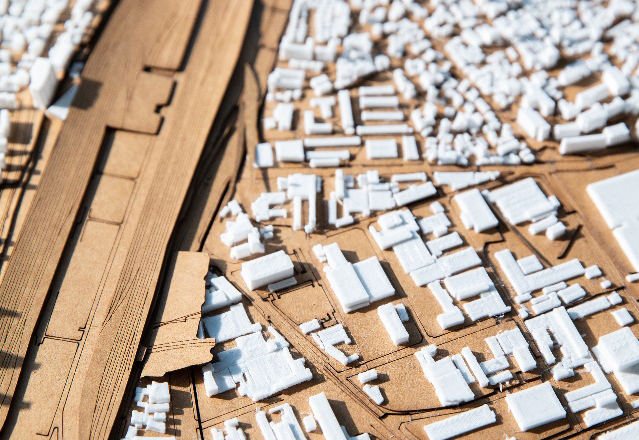
-
- Our main objective of design and research is how we can make a city better. To achieve this goal, KAIST Urban Design Lab’s design and research both explore roles of building environments in human being’s daily challenges to continuously sustain urban life. By analyzing urban characteristics and designing urban places, we seek to make urban places sustainable, resilient, smart for all people. We actively participate in design and research projects around the world to improve our urban and built environments. Currently design and research interests include data-driven analytics and innovative, experimental, creative design approaches.
-
- KAIST Urban Design Lab’s research themes are focusing on urban data-driven analytics including:
- 1)
Analyze urban conditions based on urban-generated data
- 2)
Analyze spatial configuration, urban perception, urban identity, urban redevelopment impacts
- 3)
Identify urban characteristics based on spatial, social big data
- 4)
Analyze urban spatial configurations based on urban spatial network
- 5)
Analyze correlations between urban networks and social, spatial, cultural, economic, environmental features
-
- KAIST Urban Design Lab’s design themes are focusing on innovative, experimental and creative approaches including:
- 1)
Demonstrate experimental approaches to urban design
- 2)
Pursue innovative and creative designs and methods capable in academia
- 3)
Promote environmental, social sustainability in urban design methods and projects
- 4)
Sustain daily experiences and lives by analyzing urban spatial configuration and identity
- 5)
Conduct urban design projects of mixed-use developments, housing complexes, urban renewal
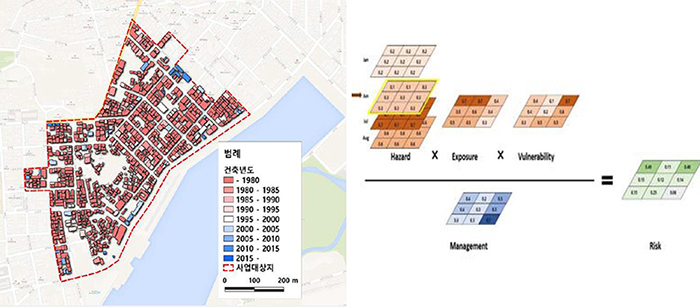

- 1) Risk analysis in small declining urban areas
-
- In this research topic, we analyze relationships between urban geometry and energy consumption in a city. By analyzing various format of spatial data including geographic information, census, point cloud, panoramic views, etc., we priortize spatial locatoins depending on risks in small declining urban areas. We develop assessment parameters in a small area and prediction methods for risk changes.
- 2) Greenhouse gas reduction and management in urban planning and design
-
- According to the amount of greenhouse gas in urban areas, we develop a method to identify spatial grades and to assess land use planing to reduce greenhouse gas. By using vector and raster format data in urban space, we specify geolocations and grades for adding green space in existing and new cities. We develop geographic datasets and methods to assess spatial and planning data for suggesting GHG reduction and management schemes.
- 3) Urban geometry and energy consumption
-
- To develop a guideline of urban geomtry in planning and urban design, we demonstrate relationships between urban geometric characteristics and energy consumption patterns in large cites. We develop major geomtric variables and spatial datasets of whole ciites to examine relationships between geomtric features and electricity and gas energy consumptions. Given the results of significant geometric features, we suggest a planning and design guildelines to make an energy-efficient city.
- 4) Urban perceptions
-
- We analyze visual, accostic perceptions of people to capture spatial characteristics and meanings in a city. We illustrate changes in visual perceptions by urban regenerations and sound characteristics on a daily place to improve urban conditions and attachments. By collecting people’s perception in various social media, we develop methods to interpret urban perceptions and meanings.
- 5) Urban environmental and spatial conditions
-
- We develop methods to mitigate environmental and spatial impacts on urban areas due to the climate change. Environmental characteristics include heatwave, heavy rainfall and snow, air ventilation. particulate matter, etc. in urban areas. We seek to develop environmental sustainable places for those who explore their normal daily life.
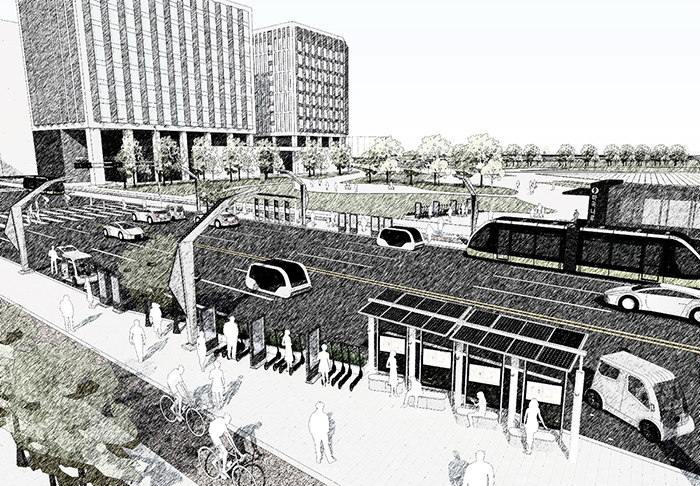
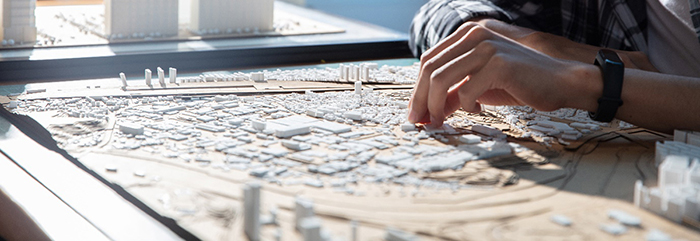
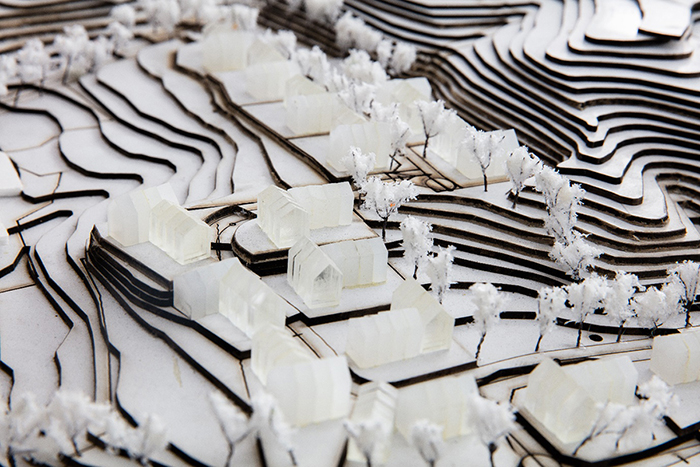
- 1) Transit-oriented development for developing countries
-
- In this design topic, we propose appropriate land uses and urban design for promoting public transits in a developing country. To succeed in mass-transite development, we suggest mixed-use developments on a station of mass transit and design an iconic place to be a typology in the developing countiry.
- 2) Smart city strategy planning
-
- We participate in various stratety planning for smart city development. By analyzing circumstances, we propose an integrated strategy with spatial, technologcial, and management schemes. Depending on existing conditions in a city, we determine appropriate approaches to successfully implement smart city programs and projects.
- 3) Campus masterplanning
-
- According to existing conditions and plans in a university campus, we develop a student and pedestrian-oriented campus masterplaninng. To reduce traffic accidents in the campus, we suggest pedestrian plaza and promenade for students by minizing parking lots. In this design topic, we suggest main axes in the campus for future developments.
- 4) Generative design methods for urban space
-
- In this design and research topic, we develop a method to generate urban form and space by using web-based tools. We develop various tools to help student to plan and design urban areas by generating lots and buildings based on street networks. In this topic, we develop generative design methods for various purpose, such as energy efficiency, urban developments, etc.
- 5) Public space without particulate matter
-
- We design public space for people who need a outdoor shelter from pariculate matter pollution. We suggest a conceptual design idea to implement in a residential area. By using natural absorption in a plant, we demonstrate various activities in the public space.
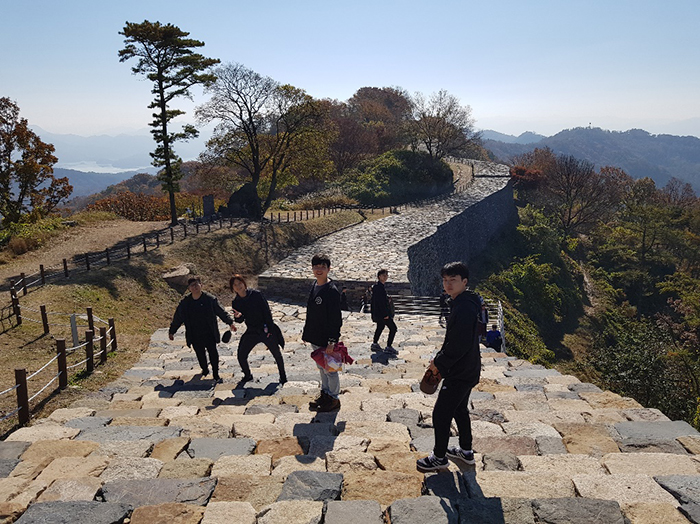
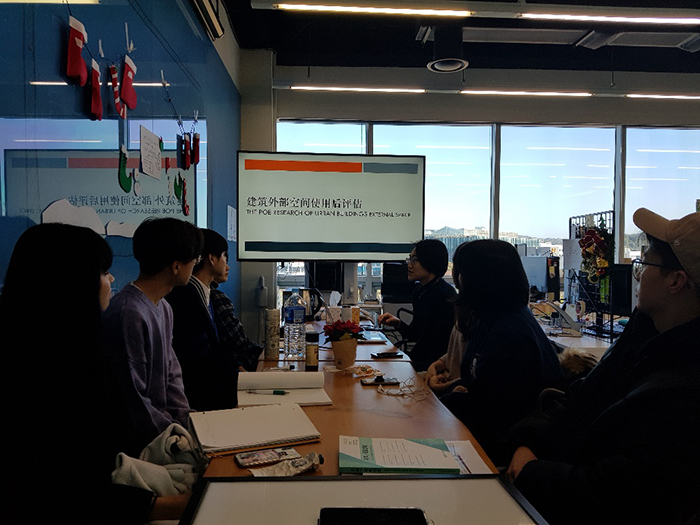

- Chanho Kim and Wonjun No won a honorable mention prize in the area of convergence data at the 2020 K-Water Environment Big Data Competition hosted by K-Water, November, 2020.

- Ha-Kyeon Lee and Youngchul Kim won the excellence prize in the 2020 Fall Conference of the Urban Design Institute of Korea, November, 2020. (Best presentation award).

- Prof. Youngchul Kim was appointed as a commissioner of the 6th Presidential Commisionon Architecture Policy on May, 2020. Prof. Kim will contribute to coordinating and deliberating national architecture and urban policies.



